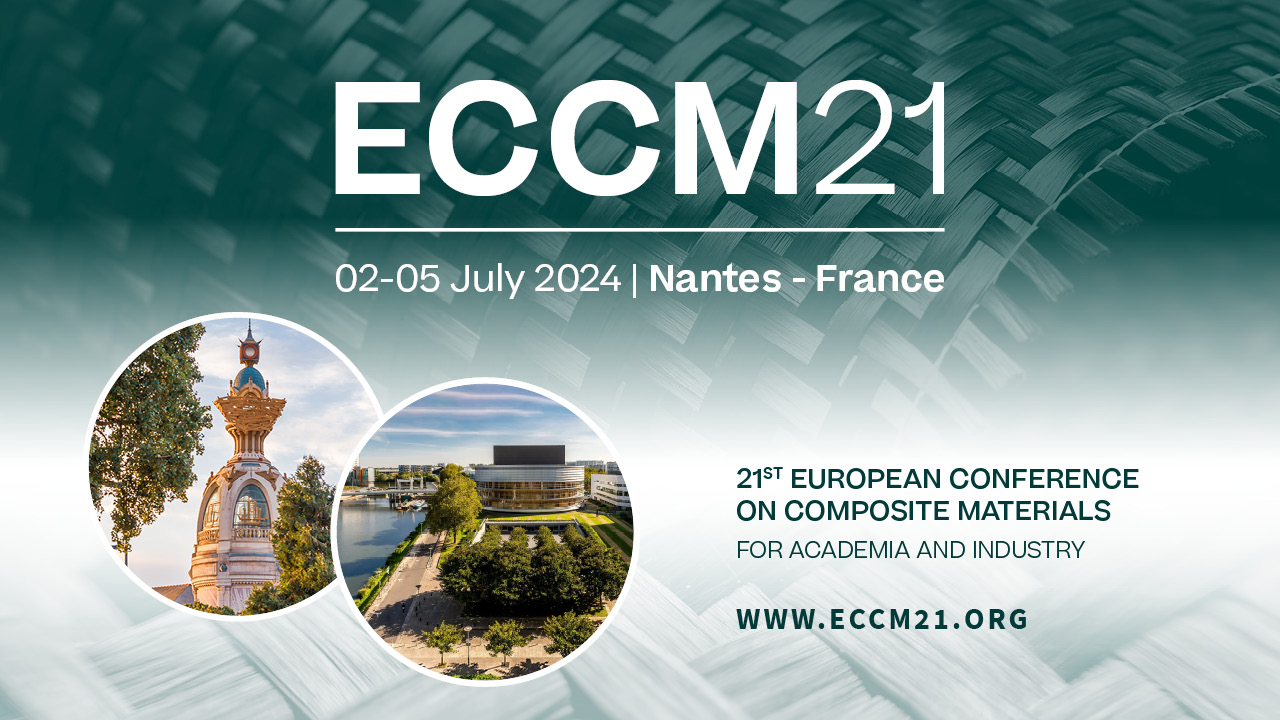Assessing Microscale Heterogeneities and Their Impact on Thermal Propagation in CFRTP Composites
Topic(s) : Special Sessions
Co-authors :
Mabel PALACIOS SUAREZ (FRANCE), Anaïs BARASINSKI , Elías CUETO (SPAIN)Abstract :
Carbon fibre reinforced thermoplastic (CFRTP) composites exhibit a remarkable potential across diverse applications due to their exceptional and outstanding properties. However, the complexity of their processing, particularly during the heating phase, remains insufficiently understood and is often addressed through simplified models using homogeneous equivalent materials. This study aims to overcome these simplifications by analysing microscale variables existing on unidirectional CFRTP composite tapes and evaluating their impact on the thermal response exhibited by these materials.
To comprehensively assess the impact of variables that can be identified at the microscale, namely porosities, fibre distribution, surface roughness and thickness variation, on the thermal field evolution of CFRTP tapes when subjected to a heating beam, a methodology integrating experimental measurements with numerical simulations was developed.
A setup was designed for the acquisition of experimental data using a thermal camera to capture real-time temperature variations across the surface of diverse CFRTP samples during their exposure to infrared (IR) lamp heating. In parallel, numerical simulations were employed to analyse the temperature evolution through the thickness of the tapes.
The experimental studies reveal a non-uniform temperature distribution across the exposed tape surfaces. Noticeably, temperature profiles demonstrate a correlation with the surface roughness of the tapes, while smoother tapes exhibit a more uniform surface temperature profile, samples with rougher surfaces showcase higher temperature variations. Aligning with these observations, numerical simulations corroborate the significant influence exerted by the previously mentioned variables on the temperature evolution. These observations underline the critical role played by the inherent heterogeneities of CFRTP composites, emphasizing the necessity to move beyond
simplified homogeneous models for a deeper understanding of their intricate thermal behaviour.
Exploring these complexities at the microscale involves considerably high computational costs. To overcome this drawback, we took into consideration the increasing powerfulness of artificial intelligence and propose to use deep learning techniques to effectively manage our numerical and experimental datasets. With this approach a data-driven predictive model is developed for the temperature evolution of CFRTP tapes.
By acquiring this deeper understanding, we establish a groundwork not only for comprehension but also for actively manipulating the microstructure of CFRTPs in order to achieve materials with precisely engineered properties suitable for specific applications.
To comprehensively assess the impact of variables that can be identified at the microscale, namely porosities, fibre distribution, surface roughness and thickness variation, on the thermal field evolution of CFRTP tapes when subjected to a heating beam, a methodology integrating experimental measurements with numerical simulations was developed.
A setup was designed for the acquisition of experimental data using a thermal camera to capture real-time temperature variations across the surface of diverse CFRTP samples during their exposure to infrared (IR) lamp heating. In parallel, numerical simulations were employed to analyse the temperature evolution through the thickness of the tapes.
The experimental studies reveal a non-uniform temperature distribution across the exposed tape surfaces. Noticeably, temperature profiles demonstrate a correlation with the surface roughness of the tapes, while smoother tapes exhibit a more uniform surface temperature profile, samples with rougher surfaces showcase higher temperature variations. Aligning with these observations, numerical simulations corroborate the significant influence exerted by the previously mentioned variables on the temperature evolution. These observations underline the critical role played by the inherent heterogeneities of CFRTP composites, emphasizing the necessity to move beyond
simplified homogeneous models for a deeper understanding of their intricate thermal behaviour.
Exploring these complexities at the microscale involves considerably high computational costs. To overcome this drawback, we took into consideration the increasing powerfulness of artificial intelligence and propose to use deep learning techniques to effectively manage our numerical and experimental datasets. With this approach a data-driven predictive model is developed for the temperature evolution of CFRTP tapes.
By acquiring this deeper understanding, we establish a groundwork not only for comprehension but also for actively manipulating the microstructure of CFRTPs in order to achieve materials with precisely engineered properties suitable for specific applications.

